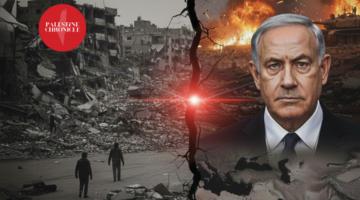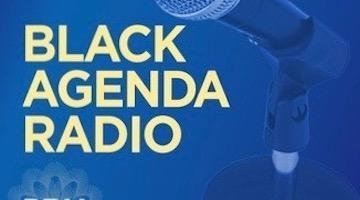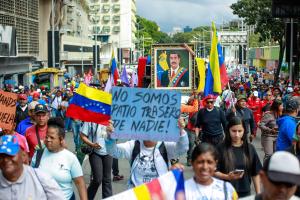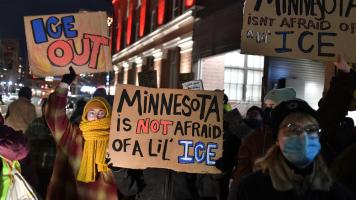Black men are besieged by an American crucible uniquely designed for them in the early twentieth century.
“’Crime’ is often defined by those in power to protect their positions, and is primarily produced by structures of inequality.”
In this series, we ask acclaimed authors to answer five questions about their book. This week’s featured author is Douglas J. Flowe. Flowe is Assistant Professor of History at Washington University in St. Louis. His book is Uncontrollable Blackness: African American Men and Criminality in Jim Crow New York.
Roberto Sirvent: How can your book help BAR readers understand the current political and social climate?
Douglas Flowe: Because Uncontrollable Blackness addresses issues of criminality in African American communities it should help readers understand the historical processes that have made illegality an essential aspect of black resistance since and before slavery ended. More specifically, it makes clear how American society, capitalism, culture, and politics have marginalized black men, and how extra-legal activities became cogent responses to a legal system curved against them. The book additionally seeks to make sense of the current and past sociological and political conversations about what crime is, who is a criminal, and how to handle it, especially when it comes to race. Conservative criminological theorists have argued since the early twentieth century that crime is due to individual moral failing, committed by evil or under-developed people, and can only be eradicated through strict laws and draconian punishments. However, liberal commentators and critical criminological theorists realize “crime” is often defined by those in power to protect their positions, and is primarily produced by structures of inequality. Scholars like Derrick Bell (Race, Racism, and American Law) and Michelle Alexander (The New Jim Crow) have worked in recent decades to humanize those we consider criminals and examine the ways in which capitalism, racism, and the criminal justice system have dovetailed in criminalizing black men. This book continues this work by drawing out the humanity of black men besieged by an American crucible uniquely designed for them in the early twentieth century. With the distinct objective of enhancing our current discourse about crime in black communities, Uncontrollable Blackness uses history as a way to understand the present.
What do you hope activists and community organizers will take away from reading your book?
In the book I have used the term “uncontrollable blackness” to denote an insurgent spirit of resistance that knows no boundaries; a rebelliousness that makes breaking the law into a tool that might allow one to transcend their circumstances, by any means necessary. One of the most difficult aspects of advocating for black men swept into the legal system, legitimately or not, is the stigma our society attaches to the “criminal,” a designation that in many ways disqualifies one for the rights of citizenship. With Uncontrollable Blackness contributing to the growing body of critical race theory scholarship I hope readers take away two things, whether they are activists or not: 1) An understanding that crime and protest are two sides of the same coin. The performance of protest often includes actions that are technically criminal or that are criminalized by others, and crime is often necessary because of the same issues that cause citizens to protest. This viewpoint is not meant to romanticize crime, but to help us understand that the black freedom struggle has to include people who have been thrust, encouraged, or enticed onto the other side of law, very often for reasons that are outside of their control. 2) Ultimately, people may be responsible for their own behavior and choices, but those choices are made within a social, racial, judicial, and cultural environment that is important when discussing crime. While race is very often at the center of these conversations, so are gender, economics, and the features of American culture central to understanding black criminality.
We know readers will learn a lot from your book, but what do you hope readers will un-learn? In other words, is there a particular ideology you’re hoping to dismantle?
There are a few ideas Uncontrollable Blackness specifically challenges. First, it confronts the belief that African American men are somehow inherently aggressive or criminal. Instead it argues there is a specific set of circumstances in American history that have made black men foray outside of the law in order to secure the same rights, respect, or remuneration that all Americans want. Secondly, it inserts considerations of black crime into the historical conversation about civil rights. We have historically seen crime as separate from the overall black struggle for rights, which in many ways, it is. But this book argues we cannot understand how African Americans have fought for freedom without comprehending the role of self-defense and offensive violence, crimes for subsistence, underground economies, and the resistance embodied by black leisure in that fight. The book also makes it very clear that crime is worth talking about. Many historians and scholars, very rightly concerned about “blaming the victim,” have focused away from criminality in black life and emphasized black civil rights efforts and self-determination within American political and economic institutions. But I argue we can never truthfully begin to tackle problems of crime, policing, and mass incarceration today if we do not fully confront the roots of those issues. In slavery, the very act of owning one’s own body was illegal, and after emancipation the black code laws continued to govern black bodies. Excavating the roots of black crime and protest requires an examination of the objectives of those who sought to make their lives outside of mainstream society, those who challenged the institutions other blacks worked inside of, and those who resisted a corrupt legal and economic system by breaking the law, whether they thought it through that way or not.
Who are the intellectual heroes that inspire your work?
My work is inspired by many scholars inside of and outside of the field of history and there is not enough space to list them all here. Historians such as Kali Gross, Cheryl Hicks, and Khalil Gibran Muhammad, who have looked at black women and crime and intellectual and political thought about blackness and lawlessness, have, in many ways, inspired my work. The work of critical race theorists like Michelle Alexander, and others such as Michael Eric Dyson, Cornell West, and Tom Sugrue has helped me understand how academic writing can be activist. I grew up reading Richard Wright, Langston Hughes, and James Baldwin, all of whom primed me for the sort of work I do now. I also value the work of scholars like Frantz Fanon for his studies on the dynamics between the colonized and the colonizer in Africa; a dynamism at work here in America and very relevant to understanding crime as resistance.
In my personal life there have been a number of intellectual heroes that have impacted my work. My colleague at Washington University, Sowande Mustakeem’s imaginative work on the middle-passage has encouraged me to think in broader dimensions about my writing. Another colleague, Iver Bernstein, has not only inspired me with his own work, but with many readings and conversations he has pushed me to deeper realizations about my own. Likewise, my good friend and advisor Victor Farwell’s profound understanding of life and history has sharpened my ability to channel historical subjects and access my own stakes in academic labor. I am grateful for all of these influences and others.
In what way does your book help us imagine new worlds?
Martin Luther King once said: “Communism forgets that life is individual. Capitalism forgets that life is social, and the kingdom of brotherhood is found [in] neither...[but] in a higher synthesis that combines the truths of both.” I take this to mean that we must simultaneously recognize the reality of our separate identities as groups and individuals while also appreciating the profound commitment to each other that living in society implies. Uncontrollable Blackness does not celebrate black crime as a form of payback for centuries of wrongs, but instead it contextualizes it as millions of personal or collective revolts to America’s unique combination of racial prejudice and economic injustice; as daily revolutions against the odds of a tilted playing field; as visceral reactions to a world out of balance and dead set on emphasizing the individual over the communal for purposes of maintaining the race and class status quo. I imagine a world in better equilibrium where identity and the merits of selfhood can coexist with social responsibility, where we all grasp how an inherently unequal society produces crime. A world where we comprehend the fact of our interlocking fates, and how sickness, poverty, and dislocation in one part of the social body disrupts the entire corpus. A broader nation that will not accept the idea of profit made in private or public prisons on the confinement of poor and marginalized citizens. Uncontrollable Blackness is meant to confront this version of American life, one that swallows black men whole on the streets, in popular culture, and in police custody and prisons, with an uncomfortable truth. The complex crucible of American racism and violence has produced black criminality and, as Tupac Shakur once proclaimed, “there will never be peace” until we craft a more equitable society and strike a social balance.
Will there ever be peace, or are we all just,
Headed for doom, still consumed by the beast,
And I know, there will never be peace,
That's why I keep my pistol when I walk the streets.
--Tupac Shakur, “Never B Peace”
Roberto Sirvent is Professor of Political and Social Ethics at Hope International University in Fullerton, CA, and an Affiliate Scholar at Yale University’s Interdisciplinary Center for Bioethics, where he directs the Race, Bioethics, and Public Health Project. He is co-author, with fellow BAR contributor Danny Haiphong, of the book, American Exceptionalism and American Innocence: A People’s History of Fake News—From the Revolutionary War to the War on Terror.
COMMENTS?
Please join the conversation on Black Agenda Report's Facebook page at http://facebook.com/blackagendareport
Or, you can comment by emailing us at comments@blackagendareport.com



















